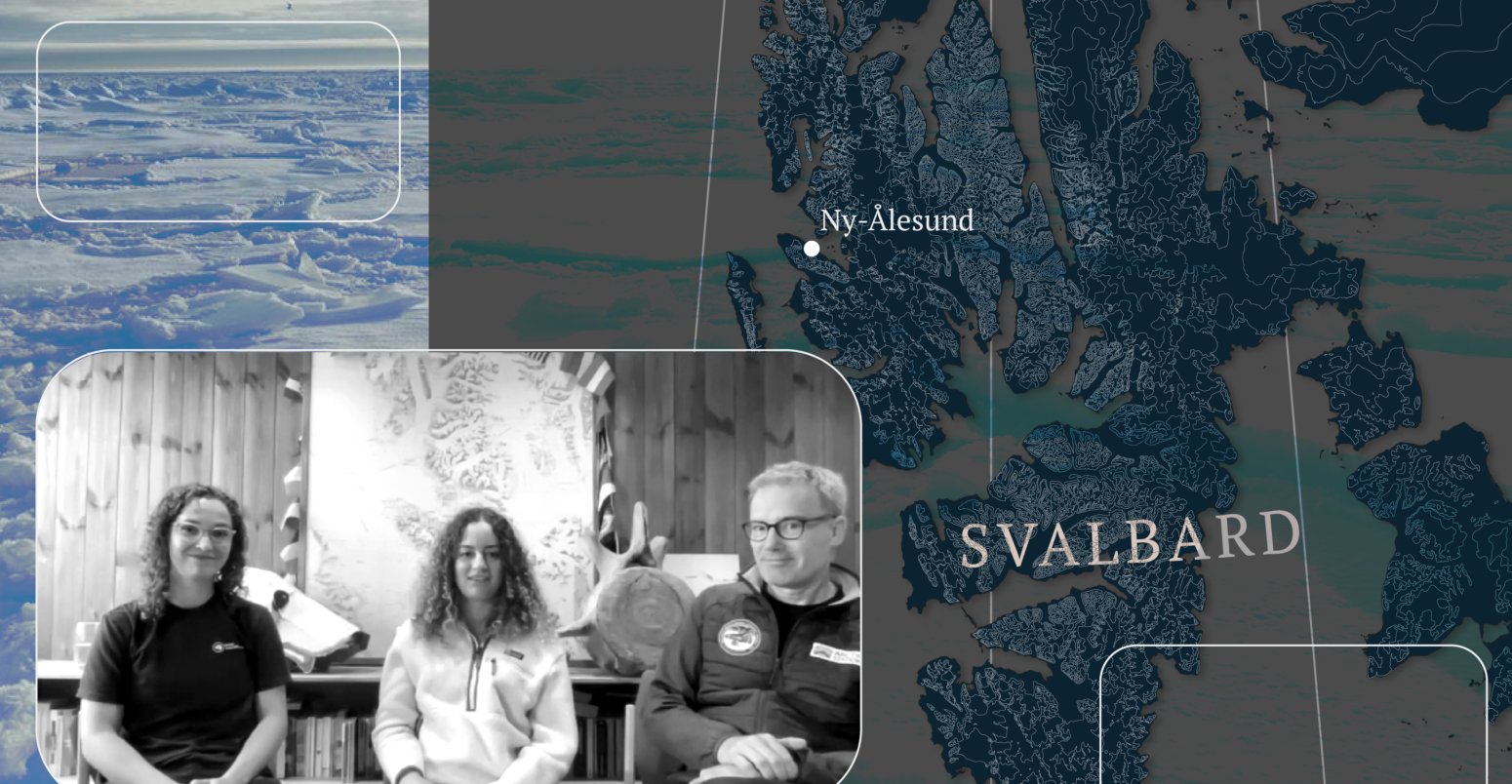
Webinar: Carbon Brief joins scientists live at the UK’s Arctic Research Station
Daisy Dunne
09.03.24Daisy Dunne
03.09.2024 | 1:50pmThe northernmost human settlement in the world, Ny-Ålesund, has for more than 30 years hosted the UK’s Arctic Research Station – the nation’s only permanent infrastructure near the Earth’s northern pole.
Located on the Norwegian archipelago of Svalbard – one of the most rapidly warming places on the planet – the station acts as a base for UK scientists studying how climate change is affecting the Arctic’s ice, ocean, ecosystems and atmosphere.
On Friday, Carbon Brief joined representatives from the British Antarctic Survey (BAS) and the Natural Environment Research Council (NERC), which manage and fund the station, respectively, to host an online webinar live from Ny-Ålesund.
The speakers explained more about the research that climate scientists are conducting in the Arctic.
They also answered a broad range of questions on everything from how people living at the station spend their evenings to the kinds of archaeological finds that have been unearthed from melting glacier ice.
The webinar was moderated by Carbon Brief’s associate editor, Daisy Dunne, and featured:
- Dorothea Moser, an ice cores scientist at BAS
- Henry Burgess, head of the NERC Arctic Office
A recording of the webinar (below) is now available to watch on YouTube.
Burgess opened the webinar by explaining the extent to which climate change is affecting Ny-Ålesund, saying:
“The Arctic is changing and warming much much more quickly than the rest of the globe. The figures in Svalbard are particularly stark. If the Arctic as a whole is warming four times more quickly than the rest of the globe, in this part of Svalbard, over the last past 50 years…winter temperatures [have become] almost 7.5C warmer.”
Moser’s research is centred on how increasing winter rainfall in the Arctic could be affecting the efficacy of ice cores, which scientists use to study Earth’s past climate. She explained:
“Specifically here in Ny-Ålesund, my work is centred around doing snow experiments during the winter…My experiments try to simulate the process of rain on snow to explore how rain on snow is affecting ice as climate archives.”
-
Webinar: Carbon Brief joins scientists live at the UK’s Arctic Research Station





